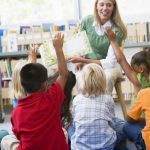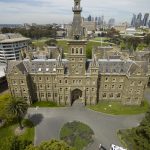The rapidly expanding alternative education sector has become a necessary solution for disengaged and vulnerable students seen to be slipping through the cracks of mainstream classrooms.
Data from the Grattan Institute has shown that up to 40 per cent of students in Australian schools could be classified as disengaged. The contributing factors to this disconnection from mainstream education includes feelings of rejection and a lack of understanding from a traditional system that fails to recognise the impacts of mental health, trauma and financial health.
Traditional academic ‘success’ has remained largely defined by classroom excellence for decades. The subsequent lack of learning flexibility and understanding from educators is forcing a growing number of students to depart mainstream classrooms, with some even abandoning education altogether.
A different way of learning
To support students that fail to connect with traditional teaching methods, alternative programs are creative with their approach to education. By offering a curriculum that is individualised and relevant to real-world experiences, students that struggle with school anxiety, mental health, trauma, and financial aid can design a learning experience purpose-built for their success.
The flexibility of alternative schools can provide students with:
- hands-on skills such as basic carpentry, motor maintenance, or food preparation.
- small-group or one-on-one learning that allows students to work at their own pace.
- a curriculum based on real-life scenarios, such as researching aspects of the community in which they live.
- trauma-focused education that prioritises relationship-building and engagement.
- support for welfare and counselling.
The schools breaking the mould
As mainstream institutions continue to ignore the growing number of disengaged students, some alternative schools are rising to the challenge. By offering flexible education solutions designed for students from all walks of life, these schools have made a brighter future possible for Australia’s most vulnerable.
Some notable alternative schools operating across Australia include:
MacKillop Education, Caulfield (VIC)
The Mackillop Education Caulfield campus promises to offer a high-quality learning experience for students that have struggled with mainstream education. Situated in Bunurong Country, this community of passionate educators work with students to develop critical social and emotional habits, connecting a healthy mindset with strong academic achievements.
Access to a “responsive learning program for students from Foundation to VCAL,” means students can engage with individualised educational material designed from, and for, real-world experiences. The offering of music therapy, art therapy and canine therapy programs aims to help students feel mentally and emotionally supported throughout their education journey as they reconnect with academic tasks.
Hestor Hornbrook Academy (VIC)
Through the Healing Oriented Program of Education (HOPE), the Hestor Hornbrook Academy has re-imagined education. Crafting a curriculum that the school itself describes as “intentionally purposeful, highly inclusive, technology enriched deeply human-centred”, HOPE is a way of life for the passionate staff and students.
Acting as a guiding light for disengaged youth, this academy’s approach to classroom activities and students’ well-being highlights the vital importance of positive relationships in their studies.
With a youth worker and education intervention specialist present in every class, students are placed into a supportive environment designed from the ground up, to help them succeed. Also offering prepared food that students can take home, support with travel, visiting well-being services and an emphasis on mental and physical health, Hornbrook aims to provide struggling students with every opportunity they need to springboard back into mainstream education.
Mastery schools (QLD)
Mastery Schools Australia is a non-profit middle school, exclusively dedicated to the needs of students from years 4–10 who have fallen behind or are experiencing learning difficulties. The institution’s first campus opened in Varsity Lakes in 2021, and the school professes to provide a quality educational alternative for students disengaged, or at risk of disengaging, from mainstream schooling.
At Mastery, the primary focus is on expanding the fundamentals of literacy and numeracy. Every classroom cohort features one master teacher and three teaching assistants to optimise student success. Offering longer schooling days aims to expand on subject material and a focus on “wrap around” mental health services to offer added support for students. The Mastery Schools’ claims is that they help develop the academic foundations and resilience that allow students to re-enter mainstream education across Australia.
The Y Vocational School, Mirrabooka (WA)
With the belief that “school doesn’t stand alone in a young person’s learning journey,” the Y Vocational School set out to create a ‘Curriculum in Re-engagement in Education’ (CARE) school in this Perth suburb, to change the way young people think about learning.
The school currently caters for 100 students, and is a preventative youth organisation that seeks to empower students through professional youth work relationships that help develop increased resilience, self-esteem, knowledge, skills and wellbeing.
With each mixed-year class capped at 20 students and supported by both a teacher and a youth worker, each child has what the schools calls a customised ‘Individual Education Plan’ that is carefully designed to best support and assist them with achieving their specific goals for the future.
While this is a fairly new initiative for the Y in WA, their Brisbane faction has been running successful vocational schools for ten years. In 2019, 71 per cent of the students at the Y Brisbane Vocational Schools either graduated Year 12 or moved into employment or further training – eclipsing the 30 per cent of educationally disengaged students found in mainstream schools.
Beafield Education Centre, Barossa (SA)
As a Learning Centre, Beafield Education Centre (BEC) is purposefully designed in its staffing, programs and facilities to support the re-engagement of students who have been excluded by mainstream schools for highly challenging behaviour and complexity.
BEC provides personalised, intensive academic and behaviour programs within smaller classroom settings (10 students). With two full-time teachers available to students at all times, programs are designed to support students for up to 10 weeks, the maximum length of a school exclusion period.
BEC also provides students, their families, school, service and other agency personnel with daily feedback accompanied by documented mid-placement Review and Transition Reports. The reports give students an outline of their placement goals and identify specific strategies that best support the student’s behavioural and learning profile, allowing students to have the best chance of success re-engaging with their mainstream school.
The Berry Street School (VIC)
The Berry Street School is a fee-free specialist, independent secondary school, specifically created to educate children with a history of adverse childhood experiences who are at risk of disengaging from their education.
With campuses located in Narre Warren, Morwell, Shepparton, and Ballarat, Berry Street currently supports some of Victoria’s most vulnerable young people, and holds one of the most disadvantaged socio-economic profiles in the state. Their teaching approach is characterised by flexibility and personalisation, with every student having an ‘Individual Education Plan’ that encompasses specific learning goals, outcomes and wellbeing goals.
Adopting a trauma-informed approach to teaching and learning, Berry Street puts the needs of students at the centre of everything they do. Their mission is to create and sustain a safe and inclusive learning community where students can access high-quality education to thrive, achieve and belong.
BUSY schools (QLD)
At BUSY Schools, Year 11 and 12 students deemed ‘disengaged’ are offered an alternative learning path for their final schooling years. Their programs allow vulnerable young people to re-engage with education and complete senior school, remain eligible for a Queensland Certificate of Education (QCE), and get a head-start into their future employment.
Over the program, students complete an individualised curriculum designed specifically to prepare each and every student with the skills they need to succeed both in school and beyond. It’s here where students will learn real-life skills and have the opportunity to start paid employment and training before they leave the program.
With seven BUSY Schools campuses currently in Queensland, the BUSY Group says it has achieved resounding success in helping students navigate their way back into education and plans to open further campuses throughout the state.
Centralian Senior College, Alice Springs (NT)
Centralian Senior College (CentralianSC) is the largest provider of senior secondary education in Alice Springs and prides itself on providing its students with flexible and responsive options to match their diverse educational needs.
Currently, the school offers the ‘Alice Outcomes’ program, which aims to provide opportunities to young people who have become disengaged from mainstream schooling. Their offer of accredited education in a supportive environment maximises students’ chances of achieving success.
The program also includes the ‘Young Mothers Strong Mothers’ program, which supports expectant and new mums to continue their education – both throughout their pregnancy and beyond.
Waranara School, Sydney (NSW)
Recognising how the individual experiences of young people have a significant impact on their education, Waranara offers students in years 9-12 several resources and pathways to personalise their educational experience.
Access to unique teaching and learning support, specialised well-being support, and access to specialist adolescent and on-site family counsellors aims to create a specialist environment designed to help students thrive in the classroom.
Boasting small student populations, above average staff/student ratio, personalised curriculum planning and a compressed model of study for year 11 and 12 content, students are given the freedom to learn how they want, when they want.
Macleay Vocational College (NSW)
Students attending Macleay Vocational College (MVC) enrol with the promise of a fresh start. It’s classified as a Special Assistance School, and caters to students from years 9-12 that ‘don’t fit’ into the traditional mainstream school setting. They may have previously suspended or expelled from mainstream education institutions or are exiting juvenile detention.
Despite this, the College has been twice identified as an ‘international best practice’ and offers a wrap-around health and well-being support service with psychologists, counsellors, social workers and mental health support workers who are all employed by the College.
Principal Ryan Martin recognises that many struggling students face unseen challenges, both at school and at home, with an alarming amount experiencing trauma, domestic violence and mental health issues.
“It is no wonder these students have not experienced success in schooling,” says Principal Martin in a 2021 ISA special assistance showcase. “The vision of a fresh start is real. Students are provided with a new opportunity to re-engage in education and change their life trajectories. MVC cannot solve all their problems but supports students to build resilience and strategies to enable them to leave school with choice, purpose and direction.”
Indie School
Indie School offers campuses in multiple locations across Australia and is designed from the ground up to focus on young people who have been unable to complete their studies in the traditional schooling system. Indie Schools set themselves apart from their alternative schooling counterparts with their adherence to ‘adult education philosophies’, emphasising the importance of choice, independence, mutual respect and accountability in the classroom.
The learning methods taught to students are designed to help boost their confidence both in and out of the classroom, helping them create strong social and emotional capabilities, life skills and positive study habits.
‘Learning by doing’ is a big part of the Indie School philosophy. Students are given the opportunity to learn in supportive environments that use individualised learning plans tailored to each student’s strengths, interests and life circumstances. But in return for this higher level of freedom, students are also expected to hold greater self-responsibilities when it comes to their studies.
Every Indie School student has an Individual Learning Plan (ILP). An ILP is a personalised educational tool designed to assist in student success. The school bills itself as flexible and future-orientated, and says its ILPs create meaningful short-term outcomes, creating a flow-on effect that leads to long-term success.








